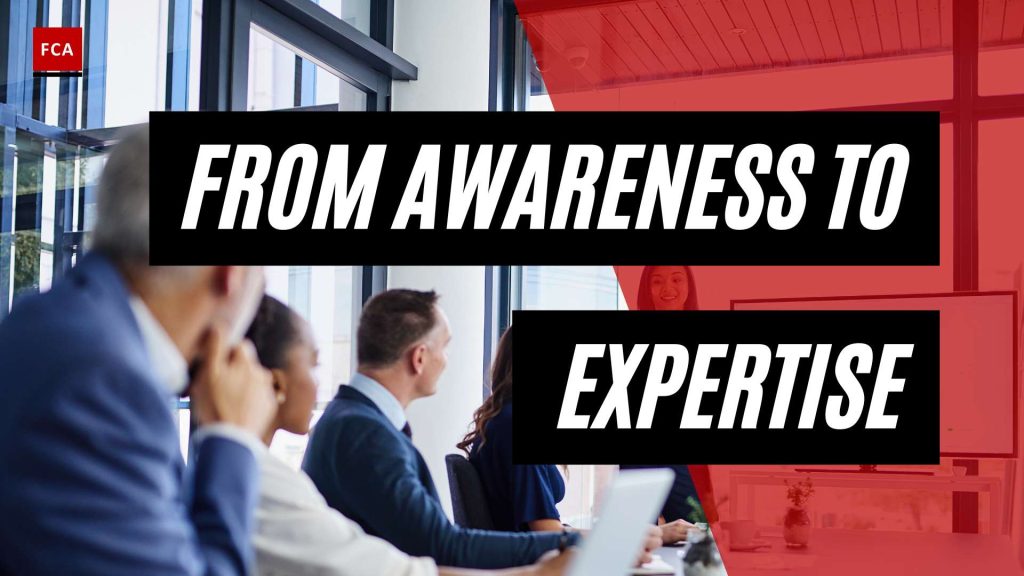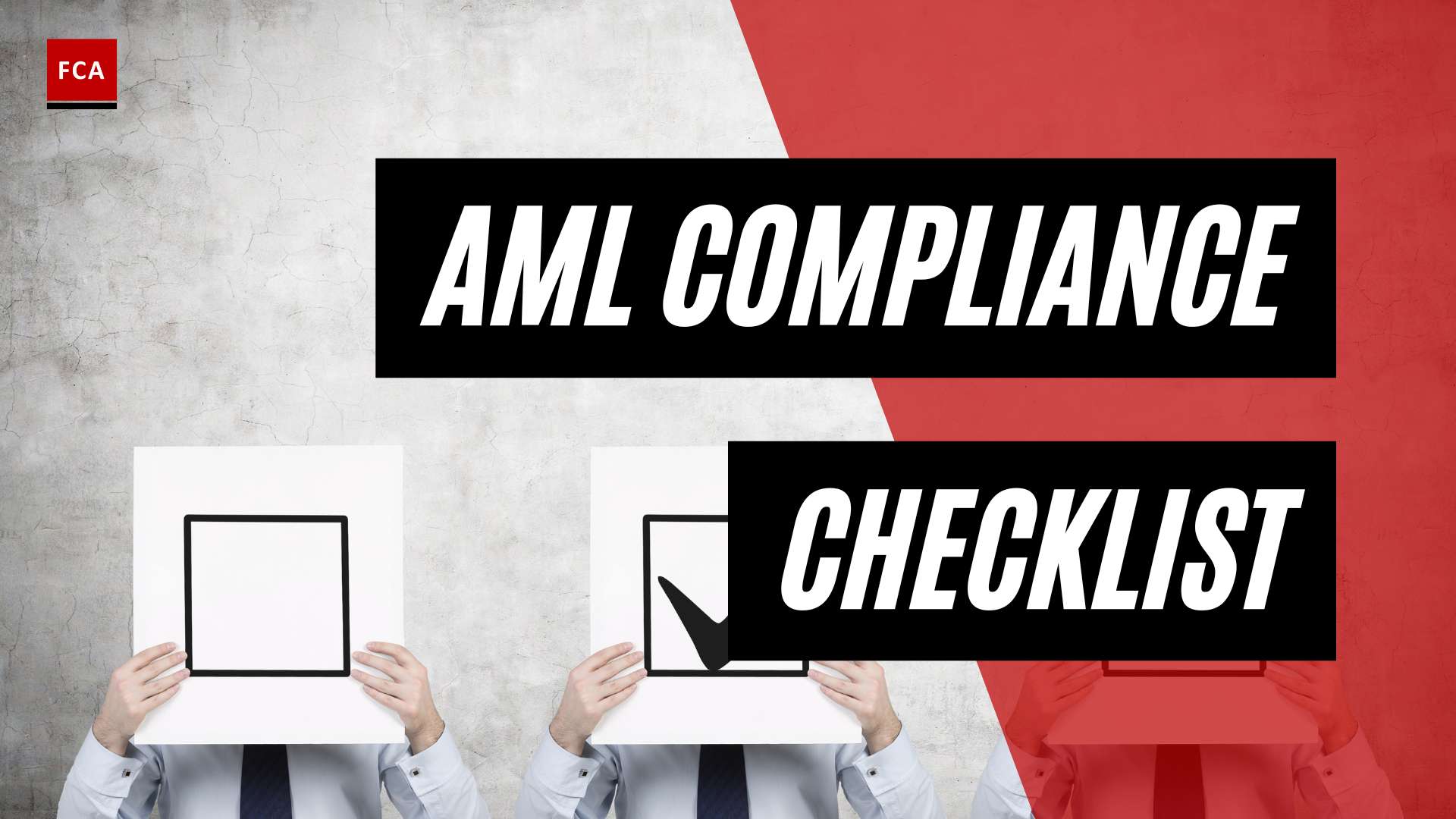AML Compliance for Non-Financial Businesses
In today’s regulatory landscape, non-financial businesses are increasingly required to adhere to Anti-Money Laundering (AML) compliance standards. Understanding the fundamentals of AML compliance and the consequences of non-compliance is essential for these businesses.
Understanding AML Compliance
AML compliance refers to the set of policies, procedures, and controls implemented by businesses to prevent money laundering and the financing of illegal activities. While financial institutions have long been subject to AML regulations, non-financial businesses are now also required to comply with these measures to mitigate the risk of facilitating illicit financial transactions.
Non-financial businesses may include industries such as real estate, legal services, gaming, and precious metals dealers, among others. The specific requirements and regulations can vary based on the jurisdiction and industry. However, the overarching goal remains the same: to prevent money laundering activities and the misuse of the financial system.
To achieve AML compliance, non-financial businesses must establish robust internal controls, conduct customer due diligence, and develop comprehensive AML policies and procedures. These measures help identify and report suspicious transactions, ensuring compliance with regulatory obligations and safeguarding the integrity of the financial system.
Consequences of Non-Compliance
Non-compliance with AML regulations can have severe consequences for non-financial businesses. The penalties for non-compliance can include substantial financial fines, regulatory sanctions, and reputational damage. In some cases, criminal prosecution may also be pursued.
Financial penalties can vary depending on the jurisdiction and the severity of the non-compliance. In some instances, fines can amount to a significant percentage of a business’s annual turnover, reaching as high as 10% (Financial Crime Academy). These substantial fines can have a detrimental impact on a business’s financial stability and profitability.
Reputational damage is another significant consequence of non-compliance with AML regulations. When a non-financial business fails to meet its AML obligations, it can face negative publicity, loss of customer trust, and damage to its brand image. Rebuilding a tarnished reputation can be a challenging and lengthy process, potentially resulting in a loss of business opportunities and decreased market share.
Additionally, regulatory authorities are placing increased scrutiny on non-financial businesses, expanding transparency requirements, and enforcing stricter compliance standards. The 6th Anti-Money Laundering Directive (6AMLD) in the European Union, for example, broadens the scope of individuals that non-financial businesses need to monitor, including domestic Politically Exposed Persons (PEPs). Non-financial businesses must adapt to these evolving regulatory changes to maintain compliance.
Understanding the significance of AML compliance and the potential consequences of non-compliance is vital for non-financial businesses. By establishing robust AML compliance programs, businesses can mitigate the risk of money laundering, protect their reputational standing, and ensure the financial security of their operations.
Key Components of an AML Compliance Program
To ensure robust anti-money laundering (AML) compliance for non-financial businesses, it is crucial to establish a comprehensive AML compliance program. This program consists of several key components that work in tandem to detect and prevent money laundering activities within an organization.
Designating a Compliance Officer
Designating a compliance officer is a fundamental aspect of an effective AML compliance program. The compliance officer serves as the point person responsible for overseeing the implementation and maintenance of the program. They ensure that the organization remains up-to-date with the latest AML regulations and guidelines. The compliance officer also ensures that employees are adequately trained and educated on AML policies and procedures. This role helps to establish a centralized approach to AML compliance and enhances the organization’s ability to identify and mitigate potential risks associated with money laundering.
Developing Internal Controls
Developing robust internal controls is essential for identifying and managing money laundering risks effectively. Internal controls refer to the policies, procedures, and practices implemented within an organization to prevent and detect illicit activities. These controls include stringent know your customer (KYC) procedures, transaction monitoring systems, and suspicious activity reporting mechanisms. By implementing strong internal controls, non-financial businesses can establish a framework for early detection and prevention of money laundering activities.
Establishing a BSA Training Program
An integral part of an AML compliance program for non-financial businesses is establishing a Bank Secrecy Act (BSA) training program. The BSA is a U.S. legislation that requires financial institutions to establish an AML compliance program. This program should include training components to educate employees about their responsibilities in detecting and reporting potential money laundering activities. A well-designed training program ensures that employees have a comprehensive understanding of AML regulations and are equipped with the necessary skills to fulfill their obligations. Regular training sessions help to keep employees updated on evolving AML trends and reinforce the importance of compliance.
Conducting Independent Audits and Reviews
To ensure the effectiveness and efficiency of an AML compliance program, conducting independent audits and reviews is crucial. Third-party organizations should be engaged to assess the organization’s compliance with AML regulations and evaluate the effectiveness of its internal controls. These audits, typically performed every 12-18 months, help identify any weaknesses or gaps in the AML compliance program. The results of the audits should be reported to senior management, the CEO, and the Audit Committee. By conducting independent audits and reviews, non-financial businesses can demonstrate their commitment to maintaining a strong AML compliance framework.
Performing Customer Due Diligence
Customer due diligence (CDD) is a vital component of an AML compliance program. It involves verifying the identity of customers, assessing their risk levels, and monitoring their transactions for suspicious activities. Non-financial businesses should establish robust CDD procedures to ensure that they are aware of the individuals or entities they are dealing with and can identify any potential red flags. Performing thorough customer due diligence helps to mitigate the risk of money laundering and other illicit activities.
By incorporating these key components into their AML compliance programs, non-financial businesses can establish a strong framework for preventing and detecting money laundering activities. These components work together to enhance internal controls, ensure employee awareness and training, and protect the organization’s reputation and financial security.
AML Training for Non-Financial Businesses
In the ever-evolving landscape of anti-money laundering (AML) compliance, it is essential for non-financial businesses to prioritize AML training to effectively combat money laundering and terrorist financing activities. AML training equips employees with the knowledge and skills necessary to understand their obligations and the significance of their role in preventing financial crimes. By staying informed about the latest AML requirements and best practices, non-financial businesses can protect themselves from both legal and reputational risks.
Importance of AML Training
AML training is critical for employees of non-financial businesses to comprehend their obligations and the impact they can have in preventing money laundering and terrorist financing activities (CBIZ). Non-financial businesses, such as real estate agencies, law firms, and dealers of high-value goods, are increasingly becoming targets for money launderers, making AML training essential to safeguard their operations and reputation. By providing comprehensive AML training, organizations ensure that employees are aware of their responsibilities and are equipped to identify and report suspicious transactions.
Topics Covered in AML Training
Effective AML training for non-financial businesses involves educating employees on various key topics. These topics may include:
- Customer Due Diligence: Understanding the importance of conducting thorough due diligence on customers to assess the risk of potential money laundering or terrorist financing activities.
- Suspicious Activity Reporting: Recognizing red flags and knowing how to report suspicious transactions or behaviors to the appropriate authorities.
- Sanctions Screening: Understanding the significance of screening customers against government sanctions lists to ensure compliance with legal requirements.
- Legal Obligations: Familiarizing employees with the relevant AML regulations and laws that apply to their specific industry or business sector.
By covering these topics, AML training ensures that employees possess the necessary knowledge and skills to identify and respond to potential money laundering risks. It also helps create a culture of compliance within the organization, emphasizing the importance of integrity and ethical behavior.
Frequency of AML Training
While AML training for non-financial businesses is not legally mandated, regular training sessions are necessary for compliance and risk mitigation. The frequency of AML training should be determined by factors such as the nature of the business, the level of risk involved, and any changes in AML regulations. Conducting periodic AML training sessions ensures that employees stay up to date with the latest developments in money laundering trends and regulatory requirements.
By investing in regular AML training, non-financial businesses can not only fulfill their compliance obligations but also minimize the risk of financial penalties and reputational damage associated with money laundering activities (AML UAE). A well-informed and trained workforce is a critical component of an effective AML compliance program, enabling non-financial businesses to protect themselves and contribute to the broader fight against financial crime.
Leveraging Technology for AML Compliance
To enhance AML compliance efforts and effectively manage the complexities of regulatory requirements, non-financial businesses are increasingly turning to technology solutions. Leveraging technology can help streamline processes, improve efficiency, and enable better detection of suspicious activities. Two key aspects of technology in AML compliance are the role of technology itself and the utilization of AI and machine learning solutions.
Role of Technology in AML Compliance
Technology plays a crucial role in supporting AML compliance for non-financial businesses. It enables these organizations to handle large volumes of data, monitor transactions in real-time, and conduct thorough analysis to identify potential money laundering risks (FinTech Global). By automating various processes, technology helps reduce the manual effort involved in compliance tasks and provides a more efficient and consistent approach.
Some of the key functions that technology can fulfill in AML compliance include:
- Transaction Monitoring: Technology solutions can analyze transactions, identify patterns, and detect suspicious activities more effectively than manual monitoring. By leveraging advanced algorithms and rule-based systems, these solutions can flag potentially fraudulent or money laundering activities for further investigation.
- Data Analysis: With the help of technology, non-financial businesses can analyze large datasets, including customer information, transaction histories, and external data sources, to gain deeper insights into potential risks. By leveraging data analytics tools, organizations can identify unusual patterns, detect anomalies, and proactively address potential money laundering threats.
- Reporting and Documentation: Technology enables efficient and accurate reporting, ensuring compliance with regulatory requirements. By automating report generation and documentation processes, non-financial businesses can save time and resources while maintaining meticulous records of their AML efforts.
AI and Machine Learning Solutions
Artificial Intelligence (AI) and machine learning have become increasingly prominent in the field of AML compliance. These technologies offer powerful capabilities to analyze complex data sets, detect patterns, and identify suspicious activities that may go unnoticed through traditional manual methods.
AI and machine learning solutions can:
- Enhance Detection: By analyzing vast amounts of data, AI and machine learning algorithms can detect anomalies and patterns that may indicate potential money laundering activities. These technologies continuously learn and adapt based on new data, improving their detection capabilities over time.
- Reduce False Positives: A common challenge in AML compliance is the generation of false positive alerts, which can overwhelm compliance teams and impede efficiency. AI and machine learning solutions can help reduce false positives by refining detection models and improving the accuracy of alerts, allowing compliance teams to focus on high-risk activities.
- Improve Efficiency: AI and machine learning solutions automate labor-intensive tasks, such as data analysis and transaction monitoring, enabling compliance teams to allocate their time and resources more effectively. By streamlining processes, these technologies enhance efficiency and support timely decision-making.
It’s important for non-financial businesses to carefully evaluate and select AI and machine learning solutions that align with their specific compliance needs. Implementing these advanced technologies can significantly enhance AML compliance efforts and enable organizations to stay ahead of evolving money laundering risks.
As the AML landscape continues to evolve, non-financial businesses can benefit greatly from leveraging technology to strengthen their compliance programs. By embracing innovative solutions and staying abreast of technological advancements, these organizations can effectively navigate the complexities of AML regulations and protect themselves from the risks associated with money laundering activities.
The Evolving AML Landscape for Non-Financial Businesses
As the global landscape of anti-money laundering (AML) regulations continues to evolve, non-financial businesses are facing increased scrutiny and transparency requirements. Previously, these requirements were primarily associated with financial institutions. However, in recent years, non-financial institutions have come under greater focus and are now expected to have the same level of transparency as their financial counterparts, as per the guidelines set by the Financial Action Task Force (FATF) (FinTech Global).
Increased Scrutiny and Transparency Requirements
Non-financial businesses, including real estate agencies, law firms, and dealers of high-value goods, are now more likely to be targeted by money launderers. This increased scrutiny necessitates a proactive approach to AML compliance. Non-financial businesses must establish robust AML policies, procedures, controls, and reporting mechanisms to identify, mitigate, and report any suspicious activities. By implementing effective AML measures, non-financial businesses can protect themselves from unwittingly becoming facilitators of money laundering schemes.
Compliance Costs and Investments
Compliance with AML regulations comes with a cost. According to a study conducted in 2022, non-financial businesses spent an average of $3.5 million on compliance risk, which is lower than the average of $5.7 million spent by financial institutions but still significant (FinTech Global). These costs include investments in staff training, technology solutions, and the development and implementation of AML programs. However, the investment is necessary to protect the business from financial penalties, reputational damage, and potential legal consequences resulting from non-compliance with AML regulations.
Adapting to Regulatory Changes
Regulatory changes in the AML landscape are frequent and can significantly impact non-financial businesses. Staying abreast of these changes and promptly adapting to them is crucial to maintain compliance. By actively monitoring regulatory updates and engaging in ongoing training and education, non-financial businesses can ensure that their AML programs remain effective and up to date. This adaptability allows businesses to identify and address emerging risks and strengthen their AML controls to safeguard their operations and reputation.
In conclusion, non-financial businesses must navigate the evolving AML landscape by embracing increased scrutiny and transparency requirements. This includes investing in compliance efforts, leveraging technology solutions such as artificial intelligence (AI) and machine learning, and adapting to regulatory changes. By doing so, non-financial businesses can mitigate the risk of money laundering, protect their reputational standing, and ensure the financial security of their operations.
Consequences of Non-Compliance with AML Regulations
Non-compliance with Anti-Money Laundering (AML) regulations can have serious repercussions for non-financial businesses. Understanding the potential consequences is essential for organizations to prioritize AML compliance and mitigate the associated risks.
Financial Penalties and Reputational Damage
One of the most significant consequences of non-compliance with AML regulations is the imposition of financial penalties. Regulatory authorities have the power to levy substantial fines on businesses that fail to meet AML requirements. In some cases, these fines can be as high as 10% of the annual turnover of the business (Financial Crime Academy).
For instance, the U.S. Department of Treasury’s Financial Crimes Enforcement Network (FinCEN) has assessed a staggering $252 billion in monetary penalties to U.S. banks and financial institutions in recent years for non-compliance with AML laws and regulations (CBIZ). These financial penalties can severely impact the financial stability and profitability of non-compliant businesses.
In addition to financial penalties, non-compliance with AML regulations can result in significant reputational damage. When businesses fail to effectively address money laundering risks, it undermines trust and confidence in their operations. Negative publicity, loss of customers, and damage to the brand’s reputation can have long-lasting consequences that impact the overall success and sustainability of the business (CBIZ). Rebuilding trust and restoring a tarnished reputation can be a challenging and costly endeavor.
Case Studies of Non-Compliance
To understand the gravity of non-compliance with AML regulations, examining real-world case studies can provide valuable insights.
One notable example is the case of Capital One, which was fined $390 million for both willful and neglectful violations of the Bank Secrecy Act (BSA). Capital One failed to report approximately $16 billion worth of transactions, despite receiving multiple warnings from regulators. This case highlights the importance of robust AML compliance measures and the severe consequences that can result from non-compliance (Unit21).
These case studies serve as a reminder that no business is immune to the consequences of non-compliance with AML regulations. Regardless of size or industry, non-financial businesses must prioritize AML compliance to protect their financial standing, reputation, and long-term viability.
By understanding the potential financial penalties and reputational damage associated with non-compliance, non-financial businesses can appreciate the importance of implementing effective AML compliance programs. Mitigating the risk of money laundering and protecting the reputation and financial security of the business are crucial objectives that can be achieved through a robust AML compliance framework.
Benefits of Implementing Effective AML Compliance
Implementing effective Anti-Money Laundering (AML) compliance measures brings numerous benefits to non-financial businesses. By establishing strong AML practices, these businesses can mitigate the risk of money laundering, protect their reputational standing, and ensure financial security.
Mitigating the Risk of Money Laundering
Money laundering poses a significant threat to businesses and the broader economy. Implementing effective AML compliance measures helps non-financial businesses mitigate this risk by:
- Preventing Legal Consequences: Non-compliance with AML regulations can lead to severe consequences, including reputational damage, loss of customers, fines, and potential criminal charges for individuals and businesses. By implementing robust AML programs, non-financial businesses can ensure they are meeting their legal obligations and minimize the risk of facing these consequences.
- Detecting Suspicious Activities: AML training equips employees with the knowledge and skills necessary to recognize and report suspicious activities. This includes being aware of red flags indicating potential money laundering, such as unusual transactions, inconsistent customer information, or attempts to avoid recordkeeping requirements. By empowering employees to identify and report suspicious activities, non-financial businesses can play a crucial role in combating money laundering.
- Enhancing Due Diligence Practices: AML training emphasizes the importance of conducting thorough customer due diligence. This involves verifying customer identities, assessing the legitimacy of transactions, and understanding the nature of the business relationship. By implementing strong due diligence practices, non-financial businesses can identify high-risk customers or transactions and take appropriate measures to mitigate potential money laundering risks.
Protecting Reputational Standing and Financial Security
Maintaining a strong reputation and financial security is vital for the long-term success of non-financial businesses. Effective AML compliance measures contribute to these objectives by:
- Building Trust: Implementing robust AML programs demonstrates a commitment to ethical business practices and safeguards against money laundering. This builds trust with customers, partners, and stakeholders, enhancing the reputation of non-financial businesses. Customers are more likely to engage with businesses that have a strong reputation for compliance and ethical conduct.
- Avoiding Financial Losses: Money laundering activities can lead to financial losses for businesses involved, as well as potential legal liabilities. By implementing effective AML compliance measures, non-financial businesses can protect themselves from financial losses resulting from involvement in illicit activities. This includes potential fines, legal fees, and damage to the business’s financial health.
- Safeguarding Relationships: Non-financial businesses often work with financial institutions or other entities that have AML compliance requirements. By implementing effective AML practices, non-financial businesses can maintain these relationships and ensure their ability to conduct transactions smoothly. Financial institutions are more likely to engage with businesses that have strong AML controls in place, reducing the risk of disruptions to financial services.
By implementing effective AML compliance measures, non-financial businesses can both mitigate the risk of money laundering and protect their reputational standing and financial security. AML training plays a crucial role in educating employees about AML regulations, suspicious activity reporting, and the legal obligations surrounding AML compliance. This knowledge equips non-financial businesses with the tools necessary to create a robust AML program and safeguard their operations and reputation.








